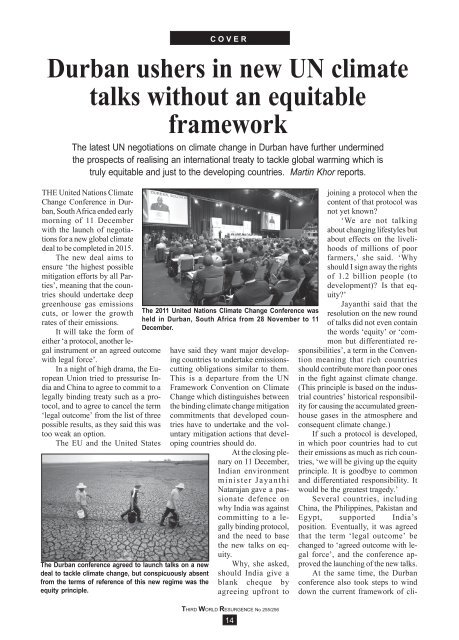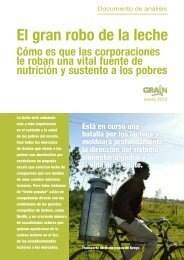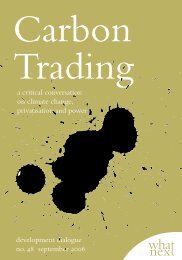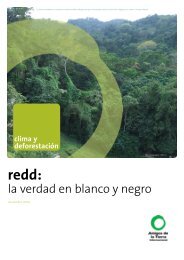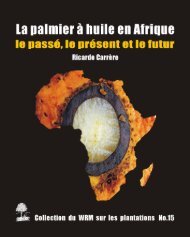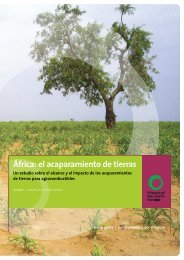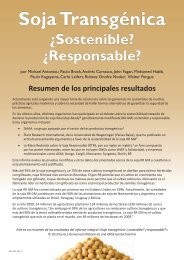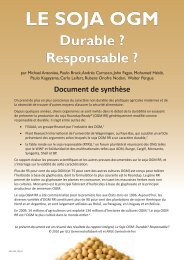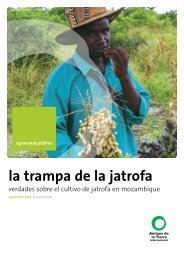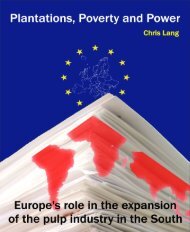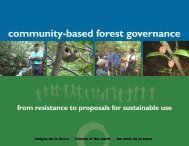Download - Third World Network
Download - Third World Network
Download - Third World Network
You also want an ePaper? Increase the reach of your titles
YUMPU automatically turns print PDFs into web optimized ePapers that Google loves.
Durban ushers in new UN climatetalks without an equitableframeworkThe latest UN negotiations on climate change in Durban have further underminedthe prospects of realising an international treaty to tackle global warming which istruly equitable and just to the developing countries. Martin Khor reports.THE United Nations ClimateChange Conference in Durban,South Africa ended earlymorning of 11 Decemberwith the launch of negotiationsfor a new global climatedeal to be completed in 2015.The new deal aims toensure ‘the highest possiblemitigation efforts by all Parties’,meaning that the countriesshould undertake deepgreenhouse gas emissionscuts, or lower the growthrates of their emissions.It will take the form ofeither ‘a protocol, another legalinstrument or an agreed outcomewith legal force’.In a night of high drama, the EuropeanUnion tried to pressurise Indiaand China to agree to commit to alegally binding treaty such as a protocol,and to agree to cancel the term‘legal outcome’ from the list of threepossible results, as they said this wastoo weak an option.The EU and the United StatesThe Durban conference agreed to launch talks on a newdeal to tackle climate change, but conspicuously absentfrom the terms of reference of this new regime was theequity principle.C O V E RThe 2011 United Nations Climate Change Conference washeld in Durban, South Africa from 28 November to 11December.have said they want major developingcountries to undertake emissionscuttingobligations similar to them.This is a departure from the UNFramework Convention on ClimateChange which distinguishes betweenthe binding climate change mitigationcommitments that developed countrieshave to undertake and the voluntarymitigation actions that developingcountries should do.At the closing plenaryon 11 December,Indian environmentminister JayanthiNatarajan gave a passionatedefence onwhy India was againstcommitting to a legallybinding protocol,and the need to basethe new talks on equity.Why, she asked,should India give ablank cheque byagreeing upfront tojoining a protocol when thecontent of that protocol wasnot yet known?‘We are not talkingabout changing lifestyles butabout effects on the livelihoodsof millions of poorfarmers,’ she said. ‘Whyshould I sign away the rightsof 1.2 billion people (todevelopment)? Is that equity?’Jayanthi said that theresolution on the new roundof talks did not even containthe words ‘equity’ or ‘commonbut differentiated responsibilities’,a term in the Conventionmeaning that rich countriesshould contribute more than poor onesin the fight against climate change.(This principle is based on the industrialcountries’ historical responsibilityfor causing the accumulated greenhousegases in the atmosphere andconsequent climate change.)If such a protocol is developed,in which poor countries had to cuttheir emissions as much as rich countries,‘we will be giving up the equityprinciple. It is goodbye to commonand differentiated responsibility. Itwould be the greatest tragedy.’Several countries, includingChina, the Philippines, Pakistan andEgypt, supported India’sposition. Eventually, it was agreedthat the term ‘legal outcome’ bechanged to ‘agreed outcome with legalforce’, and the conference approvedthe launching of the new talks.At the same time, the Durbanconference also took steps to winddown the current framework of cli-THIRD WORLD RESURGENCE No 255/25614


